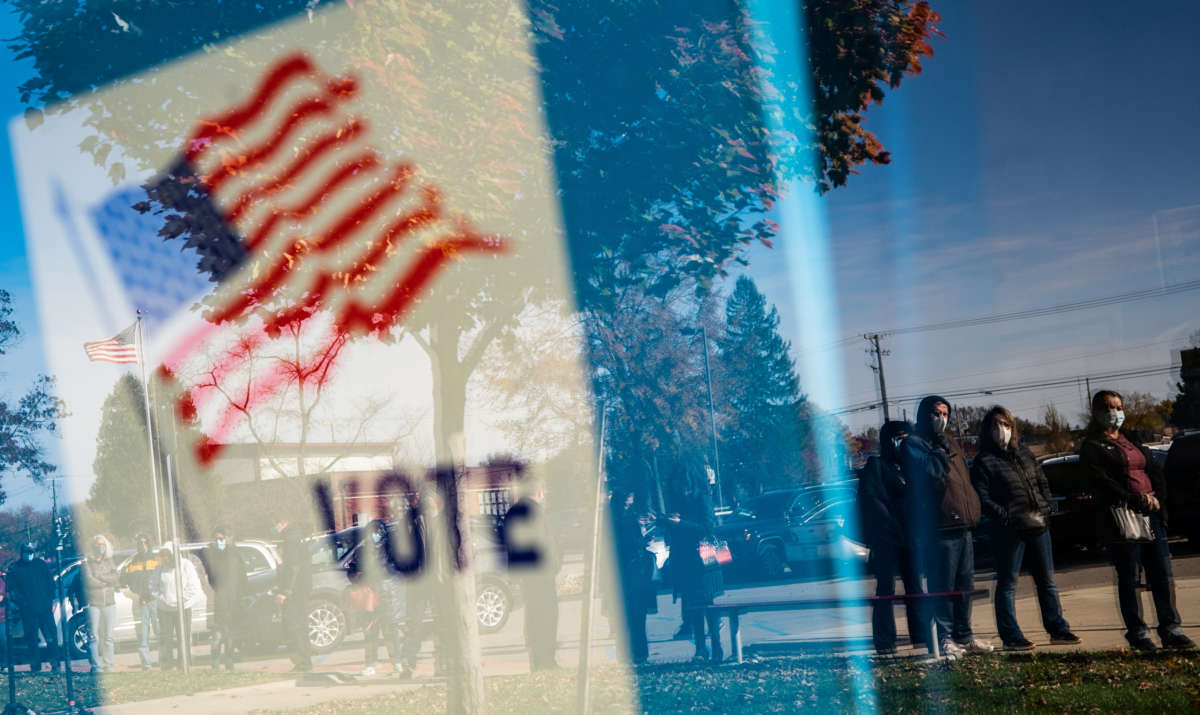Honest, paywall-free news is rare. Please support our boldly independent journalism with a donation of any size.
A group of five Democratic Party-aligned polling organizations announced on Tuesday their findings on why their numbers predicted a better outcome in the 2020 elections for Democratic candidates, including President Joe Biden, than what eventually transpired.
Their answer? They’re not entirely sure.
“Twenty-twenty was an ‘Oh, s—‘ moment for all of us,” one pollster, speaking anonymously to Politico, said about the polls being off last year. “And I think that we all kinda quickly came to the point that we need to set our egos aside. We need to get this right.”
In a joint message issued on Tuesday, the polling groups — ALG Research, Garin-Hart-Yang Research Group, GBAO Strategies, Global Strategy Group, and Normington Petts — acknowledged they overestimated how well Democrats would do in the presidential race and in congressional matchups with Republicans. Recognizing this was a problem they all faced together, the firms “decided to put competition aside to discuss what might have gone awry and to collaborate on finding a solution,” they wrote.
“There were several factors that may have contributed to polling error in 2020, and there is not a single, definitive answer — which makes solving the problem especially frustrating,” the five organizations added.
The report does detail a couple of theories. Pollsters may have overestimated their initial numbers for the rate at which different voters would turn out to the voting booths. Indeed, GOP voter turnout “exceeded expectations at four times the rate of the Democratic share,” the pollsters wrote.
Other theories abound, including concern that public trust in polling is fading — particularly among supporters of former President Donald Trump, who regularly tried to discredit polls in the run-up to Election Day. Without enough input from Trump supporters, the numbers trended stronger for Democrats.
In short, this theory suggests that the polls themselves weren’t wrong, as Trump suggested they were, but were skewed because Trump made people believe they were wrong.
Ultimately, however, the five polling organizations could not come up with a “consensus” on what was wrong, or a solution to address the problems with their numbers. “What we have settled on is the idea there is something systematically different about the people we reached, and the people we did not,” they said.
Polling errors weren’t limited to these Democratic-aligned groups, however. Other polling outfits and news organizations also got 2020 wrong in many ways.
The RealClearPolitics average of polls for the presidential race, for example, suggested that, prior to Election Day, Biden was expected to defeat Trump by around 7.2 percentage points, in the national popular vote. Instead, Biden’s win was closer to 4.5 points nationally. In Congress, the RealClearPolitics average suggested Democrats would win the House nationally by 6.8 points. In the end, they won by only 3.1 percent over Republicans.
To some degree, however, these error rates aren’t that much of a difference from years past. While polling error in 2020 was slightly higher than it was in 2016, it was similar to the average for errors in election polling for the past 12 presidential elections, Pew Research Center pointed out.
Still, having reliable polling data will be important to both major political parties in the years ahead — especially in 2022, where a slew of closely-watched Senate races could tip the balance of control in either direction.
Matching Opportunity Extended: Please support Truthout today!
Our end-of-year fundraiser is over, but our donation matching opportunity has been extended! All donations to Truthout will be matched dollar for dollar for a limited time.
Your one-time gift today will be matched immediately. Your monthly donation will be matched for the whole first year, doubling your impact.
This matching gift comes at a critical time. As Trump attempts to silence dissenting voices and oppositional nonprofits, reader support is our best defense against the right-wing agenda.
Help Truthout confront Trump’s fascism in 2026, and have your donation matched now!
